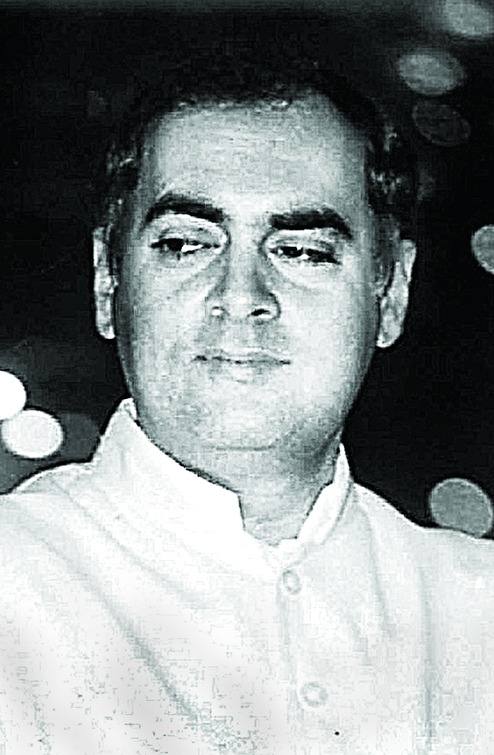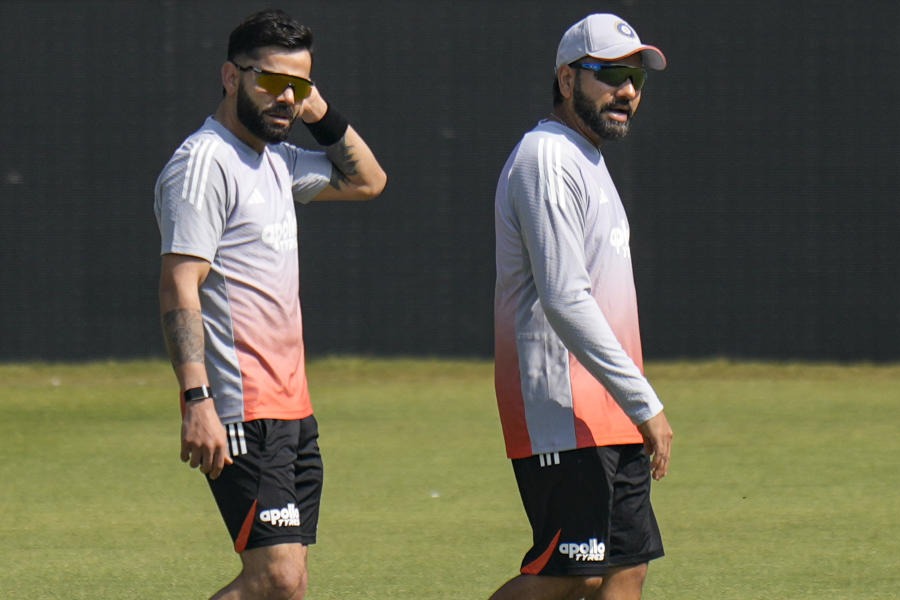
Ever since his return to India in 1986, Swamy had obtained a new friend, the Prime Minister Rajiv Gandhi. There had been a period in Indira Gandhi's later years as Prime Minister, when she had encouraged Rajiv to meet and befriend Swamy, but it had only been a small beginning. Rajiv remembered that during the Janata Party rule, when some of its members lumped Rajiv with his mother and her iniquities, and had even urged his prosecution, Swamy had stood up in Parliament and defended Rajiv; but that was all. (In fact, on one occasion when Swamy was changing flights at Nagpur, he was stopped by the pilot of the flight Rajiv Gandhi, who introduced himself and said he wanted to thank Swamy for speaking up for him.) Of those days before Indira Gandhi's death, I can recall a distinctly chilly Sonia Gandhi definitely cold and discouraging anytime Rajiv made a friendly overture to Swamy. Perhaps she remembered how he was instrumental in her losing her life insurance business in 1974.
Certainly, I remember one encounter, with Sonia calling Swamy a coward who ran away from India during the Emergency; and Swamy, who has never failed to give as good as he got, saying that perhaps she was mixing him up with the Italian army whose tanks were reputed to have only reverse gears. Nevertheless, from 1986 onwards, a cordial relationship sprang up between Swamy and Rajiv. Surrounded as he was by sycophants, (as all the Nehru-Gandhis always have been) it is truly remarkable that Rajiv saw Swamy as a disinterested and patriotic well-wisher, with dynamic ideas on India's economic development and its foreign policies. Of course, Rajiv's sycophants saw to it that the rapprochement with Swamy was not 100%. I can recall one incident in the late nineteen eighties, when the planning was on for Rajiv's state visit to China. Rajiv asked Swamy whether he would like to be included in the trip; and naturally Swamy declared that he would love to come. So it was so planned, and the details were being worked out with the concurrence of Rajiv's hosts, the Chinese Government. The programme planning was fairly advanced when one day Rajiv told Swamy that he did not feel it was possible to take Swamy with him. "Next time, Swamy, we'll work it out; but it won't be possible this time." Naturally a rather bewildered Swamy fell in line.
Some years later after Rajiv had ceased to be Prime Minister, at another conversation session, Swamy brought up with him the matter of his exclusion from Rajiv's China trip; and Rajiv very honestly and frankly told him the background: apparently a Congress journalist friend of both, had come to Rajiv to warn him, "Do you realise that if you take Swamy with you, the Chinese will have ears only for him and his ideas, and you will be left out of mid centre!" So succumbing to his sycophant's promptings, Rajiv had dropped Swamy's inclusion in the China trip. That is how Congress functions!

However, despite such sycophants, (they prefer to think of themselves as "loyal followers") in his later days as Prime Minister, Rajiv was often open to Swamy's ideas and views; and sometimes he even bucked his party line for Swamy. Thus, for example, when in 1987, in Hashimpura in Meerut district, some 40 Muslim youths were massacred by the UP Provincial Armed Constabulary, and the Congress Government both at the Centre and the State level pushed the matter firmly under the carpet, a horrified Swamy tried to persuade Rajiv to look into the matter. At first he failed: Congress Party interests were deeply involved in trying to hush up the matter. But Swamy persisted. Finally when all else failed Swamy undertook a fast unto death to force the Government to appoint an Inquiry Commission. It was, for me, a horrible experience: Swamy just would not give up his fast until his demand was met: he was visibly in very, very bad shape. At that point, purely out of a warm feeling for Swamy, Rajiv ordered the desired Inquiry Commission; and to my immense relief, Swamy gave up his fast. I also secured a promise from him that he would never again take on such a fast.
The Hashimpura matter is still in the courts: as late as last year, the Sessions Court, unable to convict the pinpointed PAC Constabulary, acquitted them for lack of evidence; but Swamy is still hoping to persuade the courts that this is not a string of murders, but is in fact a genocide, which must be dealt with in terms of the international law on genocide.
The friendship with Rajiv really blossomed after Rajiv and the Congress lost the Lok Sabha elections of 1989. Of course, V.P. Singh and his ex-Janata cohorts under [Ramakrishna] Hegde had no use for Swamy; but Rajiv was always ready to listen to him; and it reached the stage where they met nearly every day. Actually it would be more accurate to say that Rajiv and Swamy met nearly every night. Rajiv would phone up in the small hours to say that Vincent George was on his way to fetch Swamy; and Swamy and he would talk from 2am to 4am or thereabouts. What particularly touched Swamy was Rajiv's transparency, straightforwardness and willingness, (indeed determination) to learn particularly from his earlier mistakes. He feels keenly that had Rajiv been given a second chance, he would have made India a great Prime Minister.

It was not only Rajiv (and through him the Congress) that Swamy came to know well in those days in the late 1980s. He also renewed (they had all been in the Janata Party when it was founded in 1977), and built up his friendship with the three most powerful rural satraps of the day: Chaudhary Devi Lal, Mulayam Singh Yadav and H.D. Deve Gowda. He also broached ties with Shri Kanshi Ram, then systematically building up the Bahujan Samaj Party; and even with NTR of the Telugu Desam Party. Though they are no longer in the same political party, the personal friendships built up then were deep and abiding, and the warmth and trust with them and their successors continue to this day.
Earlier, Swamy had had his own personal fracas with Chaudhary Devi Lal: he had gone with Ajit to Biju Patnaik's house, where the Janata Party was debating whether to induct V.P. Singh who, out of the Congress and power, was anxious to join the Janata Party. Swamy opposed it: his view was that V.P. Singh was basically too imbued with the Congress culture to fit into the Janata Party. A haughty Devi Lal told Swamy that he did not understand politics. "You yourself have not earned your Rajya Sabha seat; and have merely been parachuted onto the throne," he stated. Cut to the quick, Swamy retorted in choice Haryanvi to which he is no stranger, that he regarded the Chaudhary's people as merely horses and mules (in Hindi that comes out as " ghoday aur gadhey"), who were there to plough their fields, grow crops, and feed people like Swamy who knew how to wield the levers of power. While an appalled Ajit looked on, practically dancing with rage, the old gentleman shook his fist and demanded that Swamy come outside where he would show him where he got off. Swamy retorted that he would not do so in case the Chaudhary got a heart attack from the couple of blows Swamy could administer if he chose. At which point Ajit, who was watching the exchange with trepidation, suddenly saw the beaming agriculturist stick out his hand, shake Swamy's hand vigorously, and express the wish to be his friend. (What he said, again in Haryanvi, was, "You are a brave lad!") Years later when I saw the finale of a Karan Thapar exchange with Swamy, the reach-out handshake and smile appeared familiar to what I'd heard Swamy describe of the Chaudhary encounter of 1988.
Excerpted with permission from Evolving with Subramanian Swamy by Roxna Swamy










